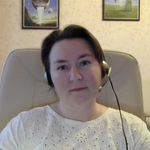Russian: A beautiful language, rich in meaning
The French writer Prosper Merime claimed that Russian was the most beautiful language of all the European languages. Meanwhile, Jerome Horsey, the English envoy, said that Russian was the richest and most elegant language in the world.
If you already speak Russian well, you will most likely agree that, at least, the language certainly is extremely rich!
For example, how many words can you make in English to call a cat using the same stem "cat"? I can give you at least 10 additional words in Russian that come to my mind - кот (cat) - котик, котя, котэ, котюня, котюнечка, котечка, котейка, котище, котяра, котяка...
Expressing Emotion in Russian
Additionally, you can create your own words by adding suffixes, and people will still understand what you feel about your cat at the moment. You can put your emotions in one word or put them into an entire sentence.
How can you do that? Simply by rearranging words in the sentence. An easy phrase like "I love you" can sound different in many ways in Russian just by changing the structure of the sentence, not adding other words. You see this happening in Russian poems to make them sound fantastic.
Russian Cases and Endings
How do we do this? The system of endings helps us. There are six cases in Russian, and they require special endings for nouns, adjectives, pronouns. That's why when we see a word with its ending we always know its real place, regardless of its position in the sentence.
For example, "Анна купила конфеты" = "Anna bought candies," but "Конфеты купила Анна" doesn't mean "Candies bought Anna." The meaning will be the same, that Anna bought candies, except now this sentence will get a little different shade.
Begin Learning Russian
If you are just starting to learn Russian, you will need to spend the most time studying vocabulary, grammar, cases, and endings. The reason for this is even if you already know how to say "I'm going to Moscow" (" Я еду в Москву"), it doesn't mean that you can also say "I'm going from Moscow" (" Я еду из Москвы"), unless you already know several cases of the Russian language.
That's why even basic conversational Russian requires a lot of studying and knowledge of grammar. However, if you are patient and eager to master the language, then you'll be able to enjoy Russian literature, which often loses its charm when translated to another language, and hold a conversation in Russian before you know it!
1 luglio 2016





